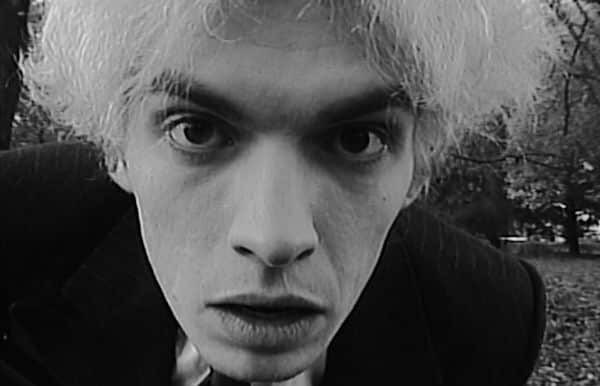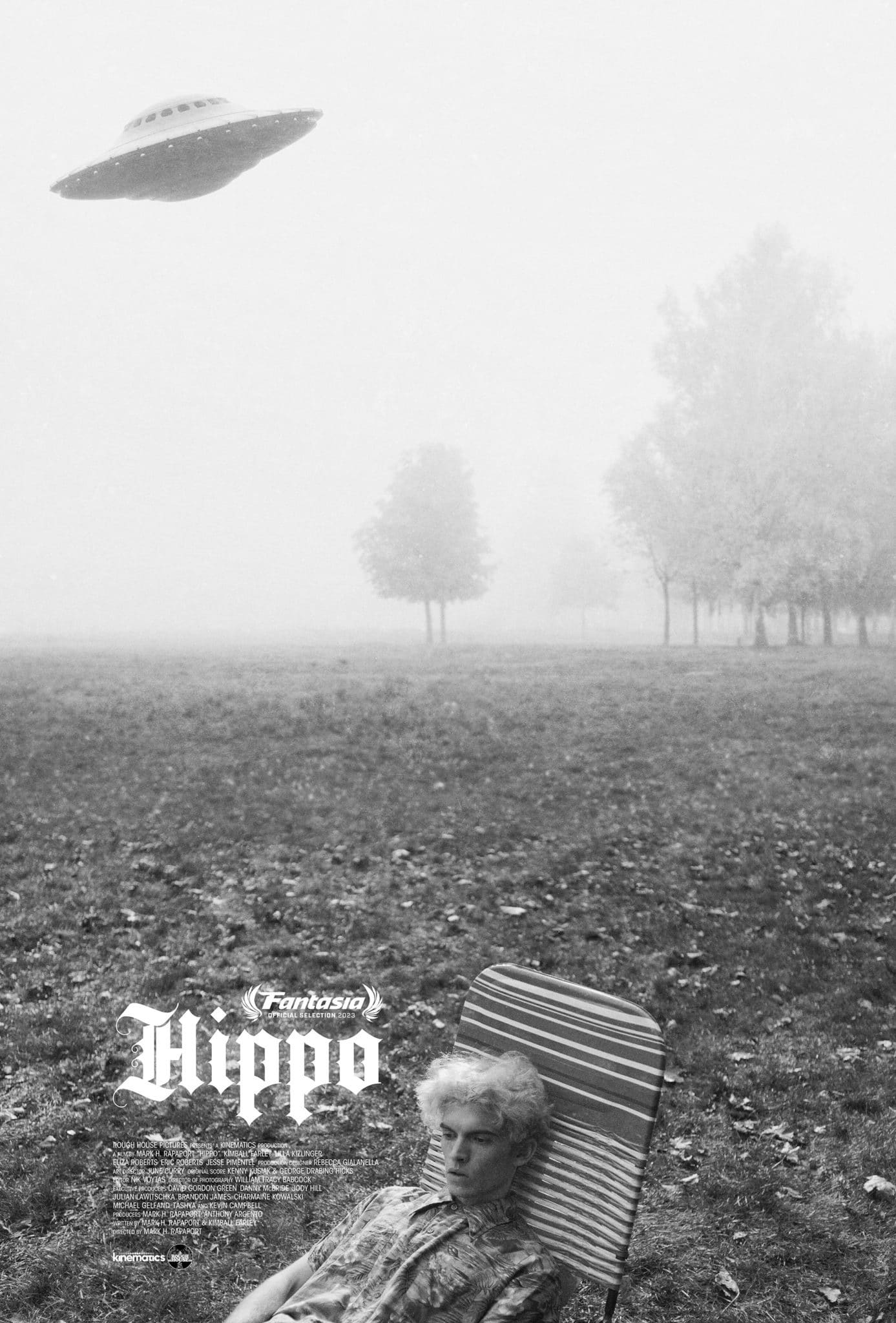
Hippo (2023) isn’t a particularly easy film to sum up, much less to recommend along easily definable lines: it’s an often moody, deeply eclectic, art-house-leaning project with a storyline which is both minimal and yet…profound, at times. It doesn’t sit snugly in any one genre, it moves from vast or unpalatable topics into domestic familiarity and back again, but it rarely provides much sense of which of those two – seismic, or cosy – is coming next. How am I doing so far? However, for all its harder-to-read or harder to pin down elements, it eventually weaves together a strangely compelling story of its key characters. These two teenagers, for all of the (often self-made) chaos which unfolds around them, grab hold of you: they’re vulnerable, they’re trying to find their own way, and you can’t help but become invested in them, come what may.
We first meet Adam – nickname Hippo – and his adopted sister Buttercup – at the grave of their father, on the fifth anniversary of his death. Adam (Kimball Farley) is at that age and stage where he’s trying to see a future for himself as a man; this shapes his reflections on his father and whilst a graveside is a pretty suitable place to be morbid, Hippo keeps it going wherever he goes (which isn’t far). Buttercup (Lilla Kizlinger) came to this family having already had a family life in Hungary, so she brings different obsessions and concerns, but: she’s having her own existential crisis at the age of seventeen. Newly aware of her sexuality, she can only really refract it through her Catholic upbringing, blurring the lines between a new awareness of her potential to be a mother with the story of the Virgin Mary and Jesus. It’s a tough gig. Hey, her desire for a boyfriend eventually takes her to Craigslist, which perhaps in the 1990s wasn’t so entrenched in common knowledge as a place of unknown terrors. (This also triggers one of the film’s most intensely weird, and hilarious episodes. I’ve never laughed so much at the appearance of a simple CD.)
Mother Ethel (Eliza Roberts) is quite a character in her own right: her tolerance is infinite and she takes her children’s attempts to carve out their own paths with a kindly sort of disinterest, but she has her own things going on: she’s a big believer in extra-terrestrial infiltration, a sentence which sounds far less strange coming in a week of official testimonials essentially saying the same thing. Maybe Ethel knew what was going on first. Oh, and the theme of alien life turns out to be an important one. Still, she tries to help her kids navigate early adulthood, albeit that her ‘birds and bees’ talk probably causes them more confusion. Hippo’s crisis of masculinity increasingly gets blended with a kind of god complex, crossed with the kind of sexual cluelessness which has probably started a lot of wars. Buttercup more and more wants a family of her own, as much as she still relies on Hippo to underwrite her idea of ‘family’.
That’s the essential set-up in Hippo, though none of its conclusions come easily and nor do they come via expected plot developments or uses of tone. For example, the arrival of Buttercup’s first-ever date, the odious (and potentially dangerous) Darwin (Jesse Pimentel) underlines the naivety of the entire family unit, but it’s not necessarily played as a ‘threat from outside’ – it skates close to that line, but it becomes too ridiculous to fear, even given what happens later. The film keeps up its self-referential, self-effacing tone, even when it’s delving into significant ideas about selfhood and agency, which it certainly does. Shot in crisp black and white which draws all of the heat out of the film’s opening summer setting, it looks a lot like an arty, experimental film (and say, was I the only person who felt the odd nod to Eraserhead? Just me?) But there’s some mumblecore stuff going on too, particularly given its focus on teenage characters. Some of its content can be quite shocking; it almost casually throws in the concept of incest in the first few minutes, and via the film’s narrator (Eric Roberts) who speaks throughout, helping viewers to navigate, but feeling for all the world like a character here. Getting mired in which pre-existing genres Hippo does or doesn’t belong to isn’t perhaps the most useful way to assess it, but it can be hard to step outside that sometimes. And there does come a point, quite early in the film, where you either settle into what it’s trying to do, or you reject it.
Around it all though, however outlandish it gets, the film develops an unmistakeable kind of warmth. Once you become aware that this is a film unlikely to offer much in the way of denouement, and once you realise it’ll have to just sit across a range of genres, it’s still a story to draw you in. It builds a weirdly charming, aberrant little world which feels quite like anything else. The highly dramatic performance given by Farley (who also co-wrote the film alongside director Mark H. Rapaport) works well against the quiet, calm performance given by Kizlinger. All in all, the film achieves a weird and wonderful mixture of elements. And I’ll never look at a Super-Soaker the same way, thanks.
Hippo (2023) featured at the Fantasia International Film Festival 2023.
